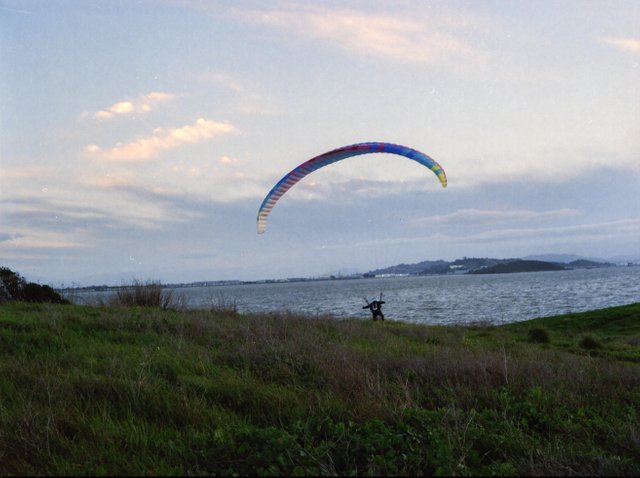Letting People Make their Own "Mistakes," then Supporting them Afterwards // Experiential Education #4

Musician Paul Rucker said that if he ever had a school, he would call it "mistakes." Now there's a school I'd sign up for.
I recently wrote the story of a mistake that landed me on Trash Island and the glorious, unexpected results that taught me how important it is to not always correct your students, but to allow for uncertainty and the real learning that comes from living with whatever results their actions may bring.
This story is from the flip side, from my perspective as a mentor working with a homeschooler. It's from everyday life, which I consider super important because in my experience learning is everywhere, not just in classrooms but especially in the so-called "mundane" events for which their magic potential is far too easy to forget.

I'm with my 12-year-old homeschool kiddo. Let's call him Kiddo, or K. K? (Jk. Can't help it.)
Anyway, K has an ADHD diagnosis. His primary language is the physical, and he is an extraordinarily talented dancer and extreme athlete. He's bursting with energy and enthusiasm, and his is the kind of body that just won't let him stop moving unless he is 100% absorbed in the activity at hand.
All this results in outward expressions of fidgeting, looking away in conversation, and saying some pretty off the cuff things that can be difficult to interpret. Is he even listening? His bodily hyperactivity also means that he is not fully aware of the many many things he physically accomplishes in any given day.
After biking around town together, we went back to my place to cook, edit videos and play music. At the end of a fun, challenging day together, I sent him on his way home.
That evening, I get text messages from his mother. K left his retainer at my house, she said. It's VERY URGENT that I find a way for him to get it back now. What's more, she says, it was my responsibility to make sure that he had brought it home with him.
We're specifically trying to support K in developing the skills to track the items he has with him, create systems for remembering where they are, and make sure they all get home, and to their proper homes within his home. As I found out later, if he goes without the retainer for a day, it can be quite painful when he puts it in the next day.
K has a low tolerance for physical pain. He gets short-tempered, loud, and disrespectful. Unfortunately, he and his mom are often at odds, and she receives the brunt of this kind of behavior. So I get why she would feel it urgent for him to get that retainer back as soon as humanly possible.
As it happens, I'm not in a place to rearrange my night to fulfill this request. His mom is anticipating something like this picture below, but there is no amount of protective parental anxiety that will change the situation. So I try to communicate that this is not just a crisis, but a learning opportunity.
.jpg)
Pic originally from the National Library of Ireland.
We have been trying to tell K for weeks that he should put everything in his backpack, that he should have a mental checklist, that he should do blah blah blah blah blah to help himself remember the material items he needs. When he's forgotten them, I've asked him what would help, fielding his ideas about what would work best for him, then trying to reinforce them and build habits. None of that has really been working.
In this case, K has the opportunity to experience the "natural consequence" of his mistake: a painful reintroduction to his important medical gear. What's more naturally undesirable than pain?

Pic of "Pain," Swedish metal band playing the 2009 Peace and Love Festival, originally taken by WikiCommons user V-Wolf
Unlike the talking and reasoning and values we wise experienced old adults have been trying to explain to him, this painful consequence is something that K will directly experience in his own body, in a way he cannot ignore.
Bringing back that retainer would be sending the message that I will save K from his mistakes, that he's not responsible for his actions because somebody else will bail him out and he won't have to suffer their consequences. Now, I don't want him to be in pain, I know his mom doesn't want that even more than I do, and I don't want her to have to deal with the fall out either. But as an educator, it is my role to allow him this opportunity to live with the results of his unskilled behavior.
It is my role to respect K's self-determination, to give him the space to notice how this situation was created by his own actions, and to give him the opportunity to commit to building less painful habits himself. I'll be there to ask him questions, to brainstorm solutions, and to guide him toward better habits, if he chooses that. If he acts out his pain on others in difficult unfair ways, I'll be there to gently draw his awareness to how this learned behavior needs to change for his own good.
If it's challenging, I'll be there for him. If he experiences pain, I'll be there to support him and to help him navigate his personal relationship with this most essential of human experiences.

Whether or not any of these learnings are available to him will ultimately depend on K's attitude. This - believe me - I cannot control. K's parents can't control it either, and our verbal explanations clearly do not have much influence on this stubbornly independent individual.
K's primary language is that of the body. As his educators, it is our responsibility to understand what ways of learning come most naturally to him, and to support those rather than those that are most natural to us, and those that make our lives easiest. How best to do that is the opportunity I am granted through my relationship to him.
None of us is perfect, and none of us doesn't make mistakes. If we are afraid to fail, or we are afraid to not do things "right," we are afraid to grow.
I am committed to giving those around me the space to "fail." To cultivating the calm in myself to know that "bad results" are not the end of the world. To accept and celebrate the sometimes-painful learning process as essential to the beauty of the human condition, and to cultivate the ability to let others know that I'll still love them, warts and all.
Hope you found that interesting. If so, there's more where that came from on my blog. Thoughts, reactions, feedback always welcomed.
~Jared
PS pictures without attributions are my own originals.
I think you're doing a great job @jaredwood. I homeschooled my kids for a decade and we all learned so much... So much even (or especially) from our mistakes. All the best to you on your journey! Upvoted & following :)
Hey, thanks for the kind words @denisechips -- sometimes you don't know, as I'm sure you know. Props to you for homeschooling for 10 years! Wow!
Thanks! I'm technically "retired" now, I guess. But not really... you never really retire from teaching your kids about life :)
It is extremely difficult to explain to our students that it is ok to make a mistake and fail. I will sometime make mistakes during my lessons just to show them that is completely normal. Thank you for the great post.
Yes!! Showing often goes way further than explaining. It's great you do that @cudavenguyen I think that's the best way. Your students are lucky to have you.
I made a "fail contest" with my outdoor education group to see who could fail the most, none of the kids wanted to do it at first, but I just pointed it out every time I "failed"... "that's number 4" and such. They started to have fun and laugh, and make jokes about it, which felt really good.
I love it Redwood! I wonder how much more challenging it will seem as we become parents.
Such a beautiful, simple, and yet easily obscured thing! Here's to failing!!!!
Also, @everlove wrote a lovely piece about her son and video games I think there's some great parallels. Maybe you've already seen it? I don't remember.
I do remember you mentioning that post to me. Thanks for the link, I'll check it out :)
No idea how to anticipate what it'll be like to be a parent. I feel like it's one of those things you can't really imagine at all until you're there. Sure, I've cared for plants, and little humans that are not my progeny, but... my very own child!? Scary. Knowing what a little terror I was, double scary.
Despite whatever uncertainties, I'm confident you and I both will make excellent fathers one day, challenging as it may be. Mostly I know I don't want to go at it alone as a parent duo, so I'm subtly gathering teammates for a while now... ;). You're gonna have the cutest little blonde butterball(s). And when you do I'll be on your team, yknow, if you want that.
I do think you're getting at something really important, which is that because I am not K's parent, I have some distinct advantages in what I can and can't get away with as his educator. Like, I could say something, and his mom could say the exact same thing, but K would be 100x more likely to react negatively to his mom saying it.
I think it's so brave to post your thoughts and feelings on this. Great writing!
I wasn't sure how interesting or novel this very everyday story would be, or if anyone would even read it all, so thanks for the encouraging feedback :) glad you liked it.
This post has received a 6.86 % upvote from @booster thanks to: @jaredwood.